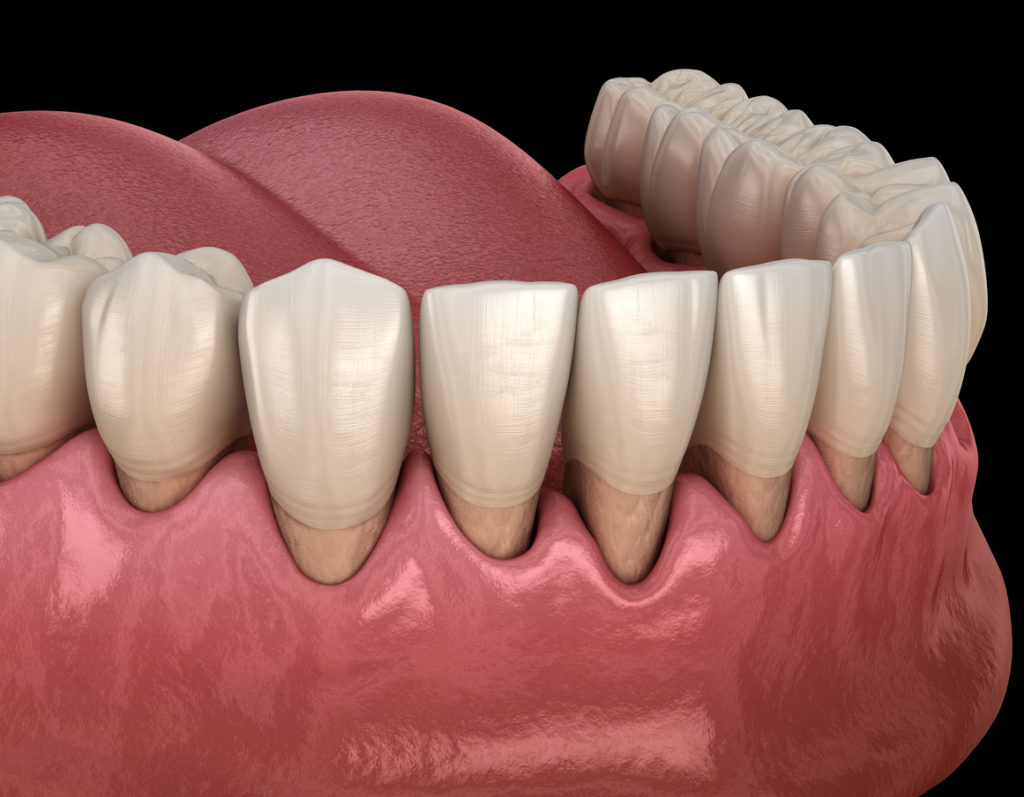Gum Disease Risk Varies By Patient

At McKinney Smiles, Dr. Lawrence strives to provide every patient with the type of individualized oral health care they need to look and feel their best. Each of Dr. Lawrence’s patients have their own unique oral health needs. That’s why Dr. Lawrence creates a customized oral health plan for all of his patients, so their teeth and gums remain healthy for a lifetime.
Patients have different diets, engage in different habits, and have different genetic characteristics. Add these factors together and it’s easy to see why patients need their own individual oral health plans.
Now, new research suggests that patients may have different reactions to plaque. According to a study published in the journal Proceedings of the National Academy of Sciences of the United States of America, a new type of inflammatory response to the buildup of dental plaque has been discovered. That plaque may react differently from one patient to the next may explain why some people are more prone to tooth loss and gum disease when compared to others.
Gum Disease Risk May Vary by Patient
The primary cause of tooth decay and gum disease is plaque, a sticky biofilm that clings to the surface of your teeth. Plaque uses the sugars you consume to produce a harmful acid that slowly breaks down tooth enamel and inflames gum tissue. Over time, this can lead to the development of cavities and gum disease.
However, some patients have more difficulty avoiding gum disease and tooth decay when compared to others who have similar lifestyle and oral hygiene habits. If oral bacteria had the same universal effect on every person, then a patient’s risk for gum disease could be easily determined using the same metrics. Yet, it seems like oral bacteria work differently depending on the individual.
When bacteria accumulate on the surface of a patient’s tooth, the body creates inflammation in an effort to reduce the buildup. Earlier research has found two major types of inflammation response – either a strong response or a low response.
The research team from the University of Washington School of Dentistry may have discovered a third type of inflammation, which they dubbed a “slow” inflammatory response. This type of response develops as a delayed, but still strong response, to plaque buildup.
Additionally, researchers discovered that the bodies of some of their study participants were able to mount a response to plaque that protects the tissue and bones in the mouth more effectively. In other words, some people possess the genetic disposition to better fight off oral plaque than others.
The study involved 21 healthy adults between the ages of 18 to 35. Researchers monitored each participants’ inflammation levels for a seven-week period, during which time the patients stopped practicing their normal oral hygiene routine for three weeks to stimulate the development of inflammation in the mouth.
The results of the study seem to definitely show that patients will have a wide variety of inflammatory responses to bacteria buildup. This could help dentists like Dr. Lawrence to better identify people with a high risk of severe gum disease, a condition known as periodontitis.
The McKinney Smiles Difference
One-size never fits all when it comes to patient dental care. To meet your oral health needs now and into the future, you need the care of a dentist that will provide your teeth and gums the unique attention they deserve.
